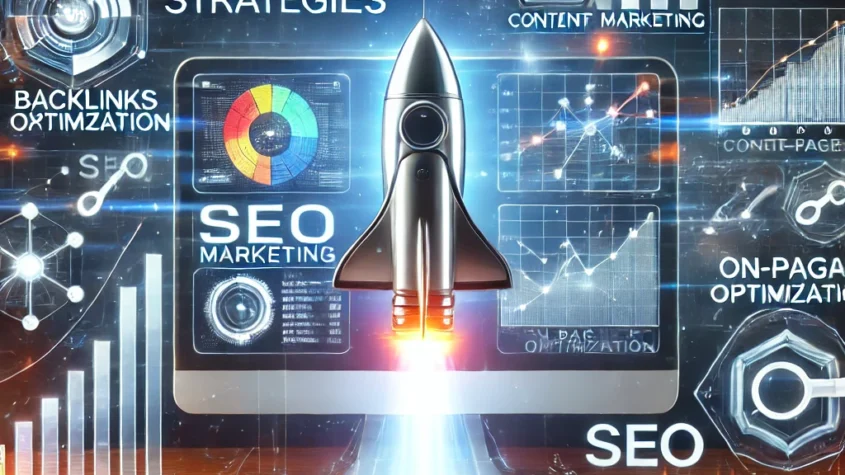
A Google Ads digital marketing agency specializes in creating, managing, and optimizing paid advertising campaigns on Google. These agencies harness the power of targeted ads to drive relevant traffic to businesses, ultimately increasing conversion rates and maximizing return on investment. As businesses seek to enhance their online presence, collaborating with an agency can provide essential expertise and resources.
Navigating the complexities of Google Ads can be challenging for many companies. An agency brings valuable insights into keyword research, ad creation, and performance analysis, ensuring campaigns align with business goals. Partnering with such a team enables organizations to focus on their core operations while benefiting from tailored marketing solutions.
With the landscape of digital advertising constantly evolving, staying updated with trends and best practices is crucial. Utilizing a Google Ads digital marketing agency can give businesses a competitive edge, leveraging analytics to fine-tune ad strategies and achieve desired results efficiently.
Fundamentals of Google Ads for Digital Marketing Agencies
Understanding Google Ads is essential for digital marketing agencies aiming to optimize their clients’ advertising campaigns. This foundational knowledge enhances their ability to execute effective strategies, leverage benefits, and manage ongoing campaigns competently.
Understanding the Google Ads Platform
The Google Ads platform is a sophisticated tool that allows businesses to create promotional advertisements that appear on Google’s search results and partner websites. It operates on a pay-per-click (PPC) basis, meaning advertisers pay each time a user clicks their ad.
Key features include:
- Campaign Types: Search, Display, Video, Shopping, and App campaigns.
- Keywords: Agencies must conduct keyword research to target the right audience.
- Ad Formats: Text, image, and video ads that cater to various platforms and user preferences.
Navigating these aspects ensures agencies can tailor strategies specific to their clients’ needs.
Benefits of Google Ads for Businesses
Google Ads offers various benefits for businesses seeking to enhance their online visibility.
- Targeted Reach: Advertisers can target audiences based on demographics, interests, and behavior.
- Cost Control: Agencies can set daily budgets and bids, ensuring clients never overspend.
- Measurable Results: In-depth analytics enable tracking of campaign performance and adjustments in real-time.
These advantages make Google Ads a powerful tool for driving traffic and conversions, aligning perfectly with client goals.
Role of Digital Marketing Agencies in Google Ads Management
Digital marketing agencies play a crucial role in the successful management of Google Ads campaigns. Their expertise allows them to:
- Develop Strategies: Agencies create customized campaign strategies tailored to business objectives.
- Optimize Performance: Continuous monitoring and A/B testing enhance ad performance.
- Manage Budgets: Expert budget management maximizes ROI and ensures effective allocation of resources.
Through these efforts, agencies provide value that translates into tangible results for their clients.
Strategic Campaign Development and Execution
Effective strategic campaign development and execution is critical for maximizing results in Google Ads. This process includes several key components that ensure campaigns are well-planned and executed.
Keyword Research and Selection
Keyword research is the foundation of any Google Ads campaign. It involves identifying specific terms and phrases that potential customers are searching for.
Using tools like Google Keyword Planner, agencies can uncover search volumes, competition levels, and related keywords.
The selection of keywords should focus on relevance, intent, and specificity.
Long-tail keywords often yield higher conversion rates as they target users closer to the point of purchase.
Ongoing analysis and adjustment of keyword strategies are essential for maintaining campaign effectiveness.
Creating Compelling Ad Copy and Design
Ad copy must capture attention quickly while conveying the brand message effectively.
Utilizing strong calls-to-action (CTAs) can encourage users to click on the ad.
Ad headlines should be engaging and include primary keywords to enhance relevance.
Visual design also plays a significant role; appealing graphics and layouts can improve click-through rates.
A/B testing various ad copies and designs allows agencies to identify top-performing combinations and optimize accordingly.
Targeting and Audience Segmentation
Targeting ensures ads reach the correct demographic for maximum impact.
Agencies can segment audiences based on factors like location, age, gender, and interests.
Utilizing remarketing strategies helps in reaching users who have previously interacted with the brand.
Custom intent audiences can be created by targeting individuals based on their recent search behaviors.
Refining audience targeting is crucial to improve return on ad spend (ROAS) and boost conversions.
Budget Allocation and Bid Management
Budget allocation involves determining how much to invest in each campaign to meet objectives.
Agencies should analyze historical data to guide budget decisions and set realistic goals.
Bid management strategies, including manual bidding and automated options, help optimize spending.
Employing bid adjustments based on device, location, or time can further enhance performance.
Monitoring campaigns regularly ensures budgets are effectively used, maximizing the efficiency of ad spending.
British Virgin Islands Company Registration Guide for 2025 Compliance and Benefits
The British Virgin Islands Company Registration process is straightforward, efficient, and…







